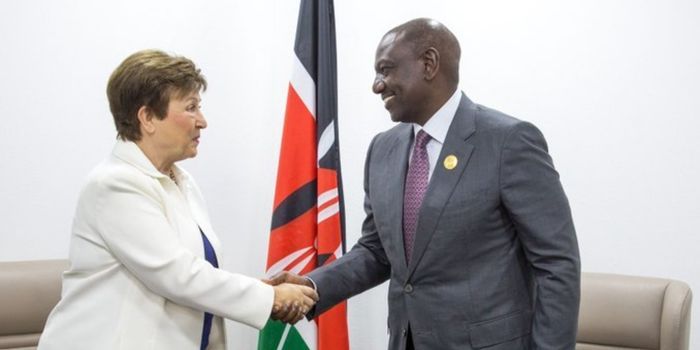The International Monetary Fund (IMF) has advised President William Ruto's administration to stand firm on the implementation of new tax measures, despite the increased protests led by the opposition.
In its Risk Assessment Matrix detailed in the Country Report for July 2023, the IMF predicted the emergence of protests over the high cost of living, which was one of the main agendas for the demonstrations led by former Prime Minister Raila Odinga.
The IMF ranked the risk as medium, indicating that it does not perceive the ongoing demonstrations as a significant threat to the President's plans.
"Unrest could reemerge in connection with protests against the higher cost of living, the need to raise more taxes, and electoral processes supported by the political opposition," the IMF analyzed.
The international financial institution has advised the country to "Remain committed to reforms under the program" despite mounting pressure from various groups, including the Catholic Church, urging the government to repeal the Finance Act.
The Finance Act 2023 includes several measures, such as the introduction of the 1.5 per cent Housing Fund and the increase in VAT on fuel products from 8 per cent to 16 per cent, which could potentially lead to higher prices of basic commodities.
The Energy and Petroleum Regulatory Authority (EPRA) has already increased the price of Super Petrol and Diesel by Ksh13, despite a court order suspending the implementation.
Currently, a liter of Super Petrol retails at Ksh195.53, while Diesel is priced at Ksh179.67.
The IMF also highlighted that global factors could contribute to a further increase in the prices of basic commodities.
"Keep domestic fuel prices aligned with global fuel prices while compressing expenditure to contain fiscal pressures. If the shock is persistent, tighten monetary policy to ensure inflationary expectations remain well-anchored," advised the IMF.
The US-based lender has recommended that President Ruto and his administration adhere to the reforms despite the various challenges predicted.
"Risks from poor implementation capacity from the new government initiatives would lead to higher budget deficits, which would increase debt ratios, crowd out private investment, and ultimately weaken growth," stated the financial institution.
Notably, President Ruto recently advocated for a Pan-African agenda, seeking solutions from within the continent and taking aim at lenders from the West. However, the IMF's directive indicates that some of these pronouncements may be perceived as political rhetoric.

